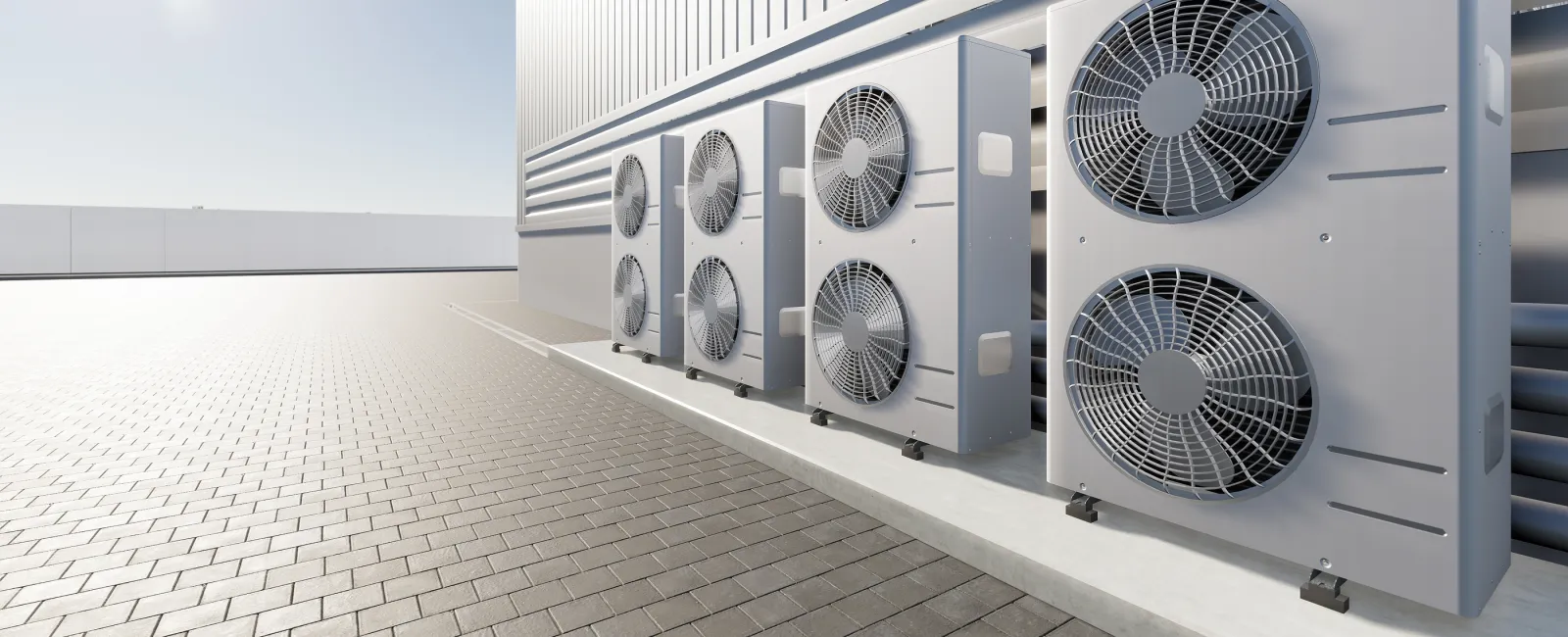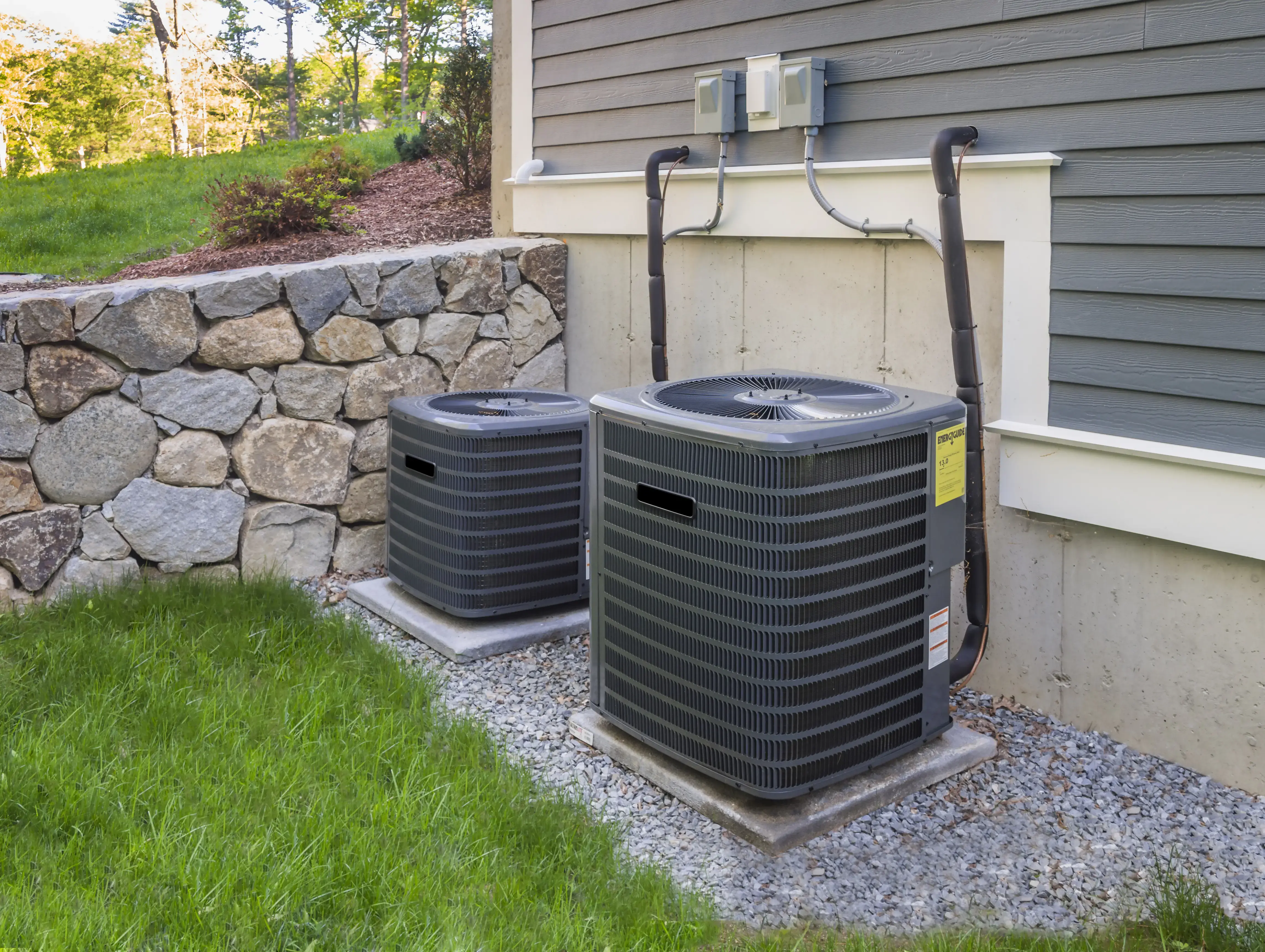Find out how HVAC experts bring insight to every project
Wiki Article
Discovering the Important Parts of an Effective Cooling And Heating System
An efficient heating and cooling system is developed on several vital components that operate in consistency. Each part, from the thermostat to the ductwork, plays an essential function in preserving convenience and energy performance. Understanding these aspects is important for optimizing performance and enhancing interior air quality. As one analyzes these components, the intricate relationships between them reveal understandings right into improving general system performance. What details aspects add most to this performance?The Function of the Thermostat in A/c Efficiency
Usually neglected, the thermostat plays an important role in the performance of A/c systems. This tiny device acts as the main control center, controling temperature level setups and ensuring suitable convenience within an area. By accurately noticing the ambient temperature level, the thermostat interacts with the air flow, heating, and air conditioning systems to keep the wanted climate
An efficient thermostat minimizes energy usage by turning on the cooling and heating system only when needed, therefore preventing extreme heating or cooling. Modern programmable and wise thermostats improve this efficiency further by enabling customers to set routines and from another location change setups, adapting to daily routines.
The positioning of the thermostat is crucial; inappropriate area can lead to incorrect temperature readings, resulting in inefficient procedure. Generally, a well-functioning thermostat not just enhances comfort but likewise adds markedly to energy financial savings and the long life of the cooling and heating system.
Recognizing the Relevance of Air Filters
Air filters offer a vital function in HVAC systems by guaranteeing that the air flowing within a room stays clean and healthy. These filters catch dust, allergens, and various other contaminants, preventing them from being recirculated throughout the setting. By recording these fragments, air filters add to enhanced indoor air high quality, which can greatly profit occupants' health and wellness, specifically those with allergic reactions or respiratory system problems.In addition, preserving clean air filters boosts the effectiveness of HVAC systems. Clogged filters can limit airflow, triggering the system to function harder to keep desired temperature levels, bring about enhanced power consumption and greater utility costs. Consistently changing or cleaning up filters is a vital upkeep step that can extend the life-span of HVAC equipment. Ultimately, understanding the importance of air filters allows property owners and building managers to take proactive actions to ensure a well-functioning, effective a/c system that advertises a comfy and secure interior atmosphere.

The Functionality of the Heating System and Heat Pump
Heaters and heatpump are important parts of a/c systems, in charge of supplying warmth throughout chillier months. Heaters operate by heating air via combustion or electric resistance, after that dispersing it throughout the home by means of ducts. They commonly offer rapid heating and can be fueled by all-natural gas, electricity, or oil, depending upon the system type.Conversely, heatpump move warm as opposed to generate it. They draw out warm from the outdoors air or ground, even in reduced temperatures, and move it indoors. HVAC experts. This dual performance permits warm pumps to also give cooling in warmer months, making them functional choices for year-round climate control
Both systems require proper maintenance to ensure performance and longevity. While furnaces excel in extreme chilly, warm pumps can be useful in modest environments. Understanding their distinct performances aids homeowners in choosing the most suitable option for their heating needs.
Checking Out the Air Conditioning Unit
The air conditioning system is a crucial element of a/c systems, available in various types to suit different needs. Recognizing the performance scores of these devices is necessary for making informed selections regarding energy consumption and cost. This section will explore the diverse sorts of a/c unit and clarify exactly how effectiveness scores influence performance.Kinds Of Air Conditioners
While different variables influence the selection of cooling systems, recognizing the different types available is essential for homeowners and building managers alike. Central air conditioning conditioners are developed to cool down entire homes or buildings, making use of a network of ducts for air movement. Home window devices use a more local option, ideal for tiny spaces or single spaces. Mobile ac system provide flexibility, enabling customers to relocate the unit as needed. Ductless mini-split systems are another choice, integrating the effectiveness of central systems with the convenience of zoning, as they need no ductwork. Finally, geothermal systems harness the earth's temperature for energy-efficient cooling. Each type includes distinctive advantages, making informed selections necessary for effective environment control.
Effectiveness Scores Discussed
Understanding effectiveness ratings is vital for selecting the right a/c unit, as these metrics provide insight right into the system's efficiency and energy consumption. One of the most usual rating for air conditioners is the Seasonal Power Effectiveness Proportion (SEER), which measures the cooling output during a common air conditioning season separated by the total electrical power input. A higher SEER indicates far better effectiveness. In addition, the Energy Performance Proportion (EER) is utilized for determining effectiveness under specific conditions. One more crucial metric is the Energy Celebrity certification, which represents that a system fulfills strict energy performance standards. By evaluating these ratings, customers can make educated selections that not just maximize convenience yet additionally reduce energy expenses and ecological effect.The Relevance of Ductwork and Air movement
Effective ductwork design and airflow management play important roles in the total performance and efficiency of HVAC systems. Proper ductwork warranties that conditioned air is distributed equally throughout a space, decreasing temperature changes and improving convenience. Well-designed ducts minimize resistance to airflow, decreasing the workload on cooling and heating tools and ultimately reducing energy usage.Airflow management involves strategically placing vents and signs up to improve the circulation of air. This protects against usual concerns such as cold or warm places, which can occur when air movement is blocked or inadequately balanced. Furthermore, the ideal air duct materials and insulation can published here even more improve effectiveness by lowering heat loss or gain during air transportation.
An effective ductwork system not only adds to energy savings yet can additionally prolong the life expectancy of HVAC devices by minimizing unnecessary strain (HVAC experts). Comprehending the significance of ductwork and air movement is vital for achieving peak Heating and cooling system efficiency.
Regular Upkeep Practices to Improve Efficiency
Regular maintenance techniques are necessary for guaranteeing peak performance of cooling and heating systems. These Visit This Link techniques include regular examinations, cleaning, and required fixings to maintain the system running efficiently. Routinely transforming air filters is essential, as blocked filters can obstruct air movement and minimize effectiveness. On top of that, service technicians need to inspect and clean evaporator and condenser coils to stop overheating and energy wastefulness.Annual professional evaluations are additionally advised, as trained service technicians can determine possible problems prior to they intensify. Lubricating relocating parts decreases damage, adding to a much longer life-span for the system. In addition, ensuring that the thermostat functions properly help in maintaining suitable temperature control.

Regularly Asked Concerns
Just how Commonly Should I Replace My Thermostat?
Thermostats should normally be replaced every 5 to 10 years, relying on usage and innovation improvements. Routine checks are recommended to guarantee peak efficiency, specifically if experiencing inconsistent temperature level control or boosted energy costs.What Size Air Filter Is Ideal for My A/c System?
The very best dimension air filter for a HVAC system varies by device layout. Typically, it's vital to consult the owner's handbook or check the existing filter dimensions to assure peak efficiency and air quality.Can I Install a Warmth Pump Myself?
Setting up a heatpump independently is possible for experienced people, yet it needs understanding of neighborhood codes and electric systems. Hiring an expert is recommended to assure appropriate installation and excellent system efficiency.Exactly how Do I Know if My Ductwork Is Efficient?
To establish ductwork effectiveness, one need to examine for leakages, step air movement at vents, examine insulation top quality, and assess temperature distinctions between supply and return ducts. Expert analyses can give complete insights into general efficiency.What Are Indications My HVAC Needs Immediate Upkeep?
Indications that a HVAC system needs prompt maintenance include uncommon sounds, irregular temperature levels, enhanced power costs, undesirable smells, and frequent cycling. Attending to these issues immediately can prevent additional damage and warranty peak system performance.Air filters offer a vital function in A/c systems by guaranteeing that the air circulating within an area continues to be tidy and visit the website healthy and balanced. Furthermore, preserving clean air filters enhances the performance of HVAC systems. Ductless mini-split systems are another option, incorporating the effectiveness of main systems with the convenience of zoning, as they need no ductwork. Recognizing efficiency ratings is vital for selecting the ideal air conditioning device, as these metrics give understanding right into the system's performance and energy consumption. The best size air filter for a HVAC system differs by system style.
Report this wiki page